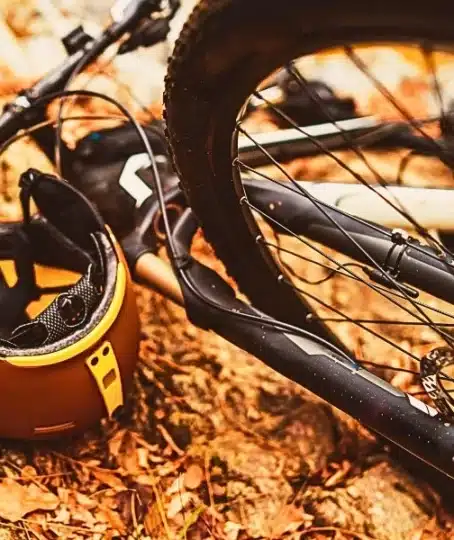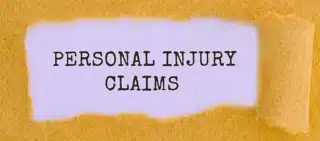
When a Dog Attacks Again and Again If dogs attack once, it’s alarming. When they attack five times, it’s no...


Potholes on city roads are among the leading causes of accidents. As such, these accidents often get blamed on city authorities tasked to keep roads free of potholes. However, cyclists in Chicago, Illinois, cannot hold the city liable for injuries and damages arising from pothole accidents. The Illinois Supreme Court recently ruled that Chicago is not responsible for injuries from potholes on roads without dedicated bike lanes or bicycle signs. As such, cyclists are considered permitted users, but not intended users like drivers.
Cyclists still maintain that holding cities accountable for bad roads, even for cyclists, would encourage safer infrastructure for everyone. It would also compel cities to repair potholes more often, and build more bike lanes and clear signage.
So, what’s next for Chicago cyclists? They are taking their struggle beyond the courtroom, pushing lawmakers to change the rules.

When you hit a pothole, your bicycle may tumble, leaving you feeling the sting of subsequent injuries. This is what a Chicago cyclist experienced back in 2019. The aftermath landed him in a legal battle that involved personal injury lawyers trying to hold the city accountable.
The cyclist sued Chicago for damages. In the lawsuit, he claimed the city was negligent in not fixing the pothole that sent him flying. However, the Illinois Supreme Court ruled that the city was not liable for this mishap.
It all boils down to two keywords: permitted and intended. While cyclists are allowed on most roads in Chicago, the ruling says they are not necessarily intended to be there unless there are dedicated bike lanes or specific signage. The street where the cyclist hit the pothole lacked those designations.
The court explained its reasoning by citing a previous case and the city's laws. One of the laws allows for bicycle use on the streets. It, however, does not permit bicycles to be on every roadway like cars.
The court’s decision has left cycling advocates disgruntled and pushing for justice. They argue that holding cities accountable for bad roads would encourage safer infrastructure for everyone. They also claim that the current permitted, but not intended, status makes it harder to push for improvements like bike lanes, discouraging people from choosing a healthy, eco-friendly commute.
Dedicated bike lanes are marked-off sections of the road separated from cars. They help create a safe and designated space for bikes. Bicycle users can move around these lanes without getting mixed up with four-wheeled vehicles.
These lanes typically have clear signs or pavement markings. They may feature a painted bike symbol or the words “bike lane.”
On the other hand, specific signage is like friendly reminders or helpful guideposts for cyclists. They can warn about upcoming hazards, like intersections, or give directions to designated bike paths or trails. As helpful checkpoints, they ensure cyclists feel safe and informed on their journey.
For Chicago cyclists, navigating the aftermath of this court ruling means choosing safe spots to ride their bikes. Here's what you need to keep in mind when cycling:
Currently, construction of some bike lanes is ongoing. But it will take a while before they cater to the needs of all cyclists in Chicago, Illinois. Instead of getting discouraged, cyclists should keep pedaling, advocating for their rights, and hoping for smoother roads and fairer rules.
The recent court ruling leaves Chicago cyclists vulnerable to potholes. That's if they aren't using roads dedicated to bikes. But instead of giving up on the city, cyclists are taking their fight to the state legislature.
Now, cyclists are taking their case to the lawmakers. They believe that lawmakers can rewrite the script for Illinois roads.
Their goal is to transform cyclists from “tolerated guests” to “intended users” of the road. Chicago cyclists want to be recognized as regular road users with equal rights and protections. As such, they want the state laws to have provisions that protect them while using city roads.
It's yet to be clear whether lawmakers will push for the inclusion of cyclists' rights. Bike lanes, meant to enhance equality on the road, are often scarce and patchy. As such, cyclists are forced back into the congested traffic with cars.
Lawmakers can change the law that defines cyclists as permitted, but not intended, road users. In particular, they could argue that all roads are for everyone, including cyclists. If they succeed, the city will be responsible for maintaining the roads. What’s more, personal injury lawyers can pursue monetary compensation for cyclists who get into a pothole accident and suffer serious injuries.
Building more protected bike lanes separated from cars gives cyclists their own space. It protects them from potholes and reckless drivers. Lawmakers can push for funding and initiatives to expand the city's bike lane network.
Even without changing the law, lawmakers can pressure the city to improve pothole repair. Such efforts could involve dedicating more resources to fixing them faster. The city may also have to ensure smooth repairs that do not create new hazards.
Lawmakers can encourage policies that prioritize cyclists. These policies may require new construction to include bike parking or give cyclists priority at certain intersections. These small changes can make a big difference for everyday cycling.
More funding for cycling infrastructure and education programs is crucial. Lawmakers can allocate money for bike education in schools and campaigns to raise awareness. They can do this after listening to cyclists, understanding their concerns, and taking action to make Chicago a safer and more bike-friendly city.
Chicago lawmakers have taken steps in the past to help cyclists and address their needs. They passed a law that requires drivers to give cyclists three feet of space when passing. The space requirement is similar to what would happen if cyclists were considered intended users of roads.
Advocacy groups argue that labeling cyclists as intended users isn't just about semantics; it's about safety. When cities legally recognize bikes as belonging on the road, it opens the door for more funding and resources for bike infrastructure. The resources can help build protected lanes separated from cars by barriers or even dedicated bike highways.
With clear signs recognizing cyclists as road users, roads become safer for everyone, not just cyclists. Drivers become more aware and learn to share the space.
Cycling advocates allege that like bikes are permitted on some roads, but are discouraged from truly sharing the space. They oppose the recent court ruling in Illinois, which says the city will not be held liable for potholes causing injuries to cyclists on “non-intended” roads. To them, the city must ensure all roads have bike lanes or specific signs, irrespective of the users.
Advocates argue that if liability for bicycle accidents due to poor road conditions lies with the city, the city is more likely to fix the conditions. The city would play an instrumental role in preventing pothole accidents for everyone. However, with the current system, the city will avoid litigation related to pothole accidents involving cyclists.
The permitted but not intended status makes it harder to convince city planners to invest in better infrastructure for cyclists. Better infrastructure means more bike lanes, wider roads, or more slow streets where cars and bikes can coexist peacefully. Advocates argue that if bikes were seen as true intended users, these improvements could be made, creating a safer and more enjoyable experience for everyone on the road.
Ultimately, the lack of clear recognition for cyclists discourages people from choosing healthy, eco-friendly commutes. Cycling advocates believe that if you feel like a second-class citizen on the road, constantly dodging potholes and navigating unclear rules, you may be afraid to take your bike to the road. To them, the verdict instills fear in cyclists, sends a message that bikes are unwelcome, and pushes people back into their cars.
Advocates think the court verdict will result in pollution and traffic congestion. They believe it will take Chicago a while to reduce motor vehicle-related emissions. The city will have fewer healthy, sustainable ways to get around at a time when global warming and greenhouse emissions are concerns.

When a Dog Attacks Again and Again If dogs attack once, it’s alarming. When they attack five times, it’s no...

Overview of the Personal Injury Claim Process in Illinois No one expects to suffer an injury or get involved in...

Exploring Caps on Damages in Illinois Personal Injury Cases Illinois does not have laws capping damages in successful personal injury...